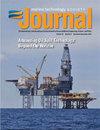河口生态知识网络取得进展:国际项目地点和潜在的前进道路
IF 0.7
4区 工程技术
Q4 ENGINEERING, OCEAN
引用次数: 2
摘要
河口生态知识网络(EEKN)将科学家和沿海渔业社区聚集在一起,为地球上主要的河流三角洲和河口寻求新的前进方向,包括密西西比河(美国)、里约热内卢格兰德河(美国)、多瑙河(罗马尼亚/乌克兰)、恒河(印度/孟加拉国)、尼日尔河(尼日利亚)、湄公河(越南)三角洲和帕托斯泻湖(巴西)。人们普遍认为,这种环境对海洋的生物生产力至关重要,它们是数亿人类居民的家园,其中许多人在其社会经济系统的运作方面直接依赖海洋的丰富性。随着人类引起的气候变化及其对地球海洋和海岸线的影响的增加,河口生态系统尤其受到海平面上升、海岸侵蚀、盐水入侵和热带风暴影响增加等问题的威胁。这些问题往往因人类对环境退化的动态影响而放大,包括过度捕捞、污染和大规模景观改造项目。EEKN旨在加强渔业社区、科学家和政策制定者之间的沟通与合作,以了解河口和三角洲生态和社会经济系统的复杂性,并制定更有效的渔业管理政策,保护和恢复海岸线,提高沿海社区的复原力。本文章由计算机程序翻译,如有差异,请以英文原文为准。
The Estuarine Ecological Knowledge Network Makes Progress: International Project Sites and Potential Ways Forward
Abstract The Estuarine Ecological Knowledge Network (EEKN) brings together scientists and coastal fishing communities in seeking new ways forward for Earth's major river deltas and estuaries, including the Mississippi (United States), Rio Grande (United States), Danube (Romania/Ukraine),
Ganges (India/Bangladesh), Niger (Nigeria), and Mekong (Vietnam) river deltas, and the Patos Lagoon (Brazil). Such environments are universally understood as crucial for the biological productivity of oceans and they are home to hundreds of millions of human inhabitants, many of whom directly
depend on that marine richness in terms of the operation of their socioeconomic systems. As human-induced climate change and its consequences for Earth's oceans and coastlines increases, estuarine ecosystems are particularly threatened by problems such as sea-level rise, coastal erosion, saltwater
intrusion, and increased impacts from tropical storms. These problems are often amplified by human dynamics of environmental degradation, including overfishing, pollution, and large-scale landscape modification projects. The EEKN is designed to enhance communication and cooperation between
fishing communities, scientists, and policy makers in learning about the complexity of both ecological and socioeconomic systems in estuaries and deltas, and in developing more effective policy for managing fisheries, protecting and restoring coastlines, and increasing the resilience of coastal
communities.
求助全文
通过发布文献求助,成功后即可免费获取论文全文。
去求助
来源期刊

Marine Technology Society Journal
工程技术-工程:大洋
CiteScore
1.70
自引率
0.00%
发文量
83
审稿时长
3 months
期刊介绍:
The Marine Technology Society Journal is the flagship publication of the Marine Technology Society. It publishes the highest caliber, peer-reviewed papers, six times a year, on subjects of interest to the society: marine technology, ocean science, marine policy, and education.
 求助内容:
求助内容: 应助结果提醒方式:
应助结果提醒方式:


